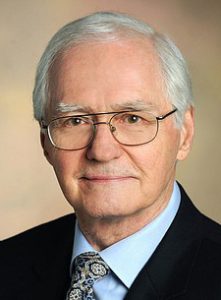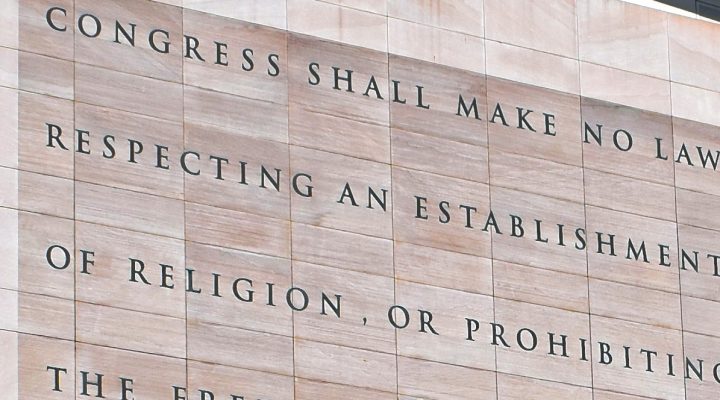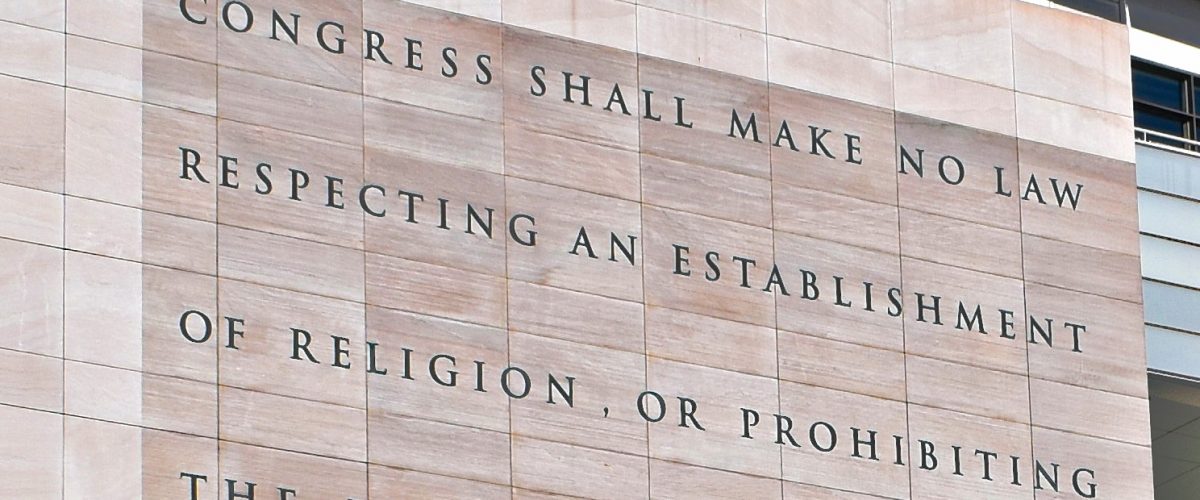My most recent column was on Christian nationalism and the threat that movement poses to religious freedom. Some would say that is our most basic freedom — to make our own way through the thicket of religions that clamor for our embrace, even if that freedom results in rejecting them all.
Orthodox Christian faith holds freedom to make decisions is an essential aspect of our imago Dei, our being created in the image of God, as recounted in the Genesis creation stories.
That freedom to decide one’s own religion, unencumbered by government officials, is assured in the First Amendment of the Bill of Rights: “Congress shall make no law respecting an establishment of religion, or prohibiting the free exercise thereof.”
Christian nationalism threatens that fundamental right. It does so by “using the power of the state to force … one accepted form of religious belief,” according to Amanda Tyler, executive director of the Baptist Joint Committee on Religious Liberty.

Richard Conville
The Louisiana Legislature’s bill requiring the Ten Commandments be posted in that state’s public-school classrooms is a crystal-clear example of violating that right. The Oklahoma secretary of education’s mandate requiring a Bible be placed in every public-school classroom and that teachers teach from it is another crystal-clear example of violating that right.
But there’s a second reason to be fearful of Christian nationalism. It is anti-democratic — meaning Christian nationalism is a minority movement that desires the power to rule the majority. The leaders of the movement believe a substantial majority of U.S. citizens have chosen wrongly by leaving religion behind or by embracing forms of religion they believe are wrong-headed. And they want to fix that by forcing their version of Christianity on you.
Here’s a telling example. On Oct. 11, 2019, then-Attorney General Bill Barr gave a major address on religious liberty at the University of Notre Dame Law School. Barr has made no secret of his close association with Opus Dei, the quasi-secret worldwide society of conservative Catholics.
Early in the speech, he laid out his thesis: “The founding generation’s view of human nature was drawn from the classical Christian tradition. These practical statesmen understood that individuals … if unrestrained, are capable of ruthlessly riding roughshod over their neighbors and the community at large. No society can exist without some means for restraining individual rapacity. But if you rely on the coercive power of government to impose restraints, this will inevitably lead to … tyranny.”
Here we have a textbook example of using religion for social control.
Translation: Human nature is burdened by original sin. Individuals can’t help themselves — they sin. Therefore, they need to be restrained. But government can’t be trusted to do the restraining because it uses coercive methods that lead to tyranny.
So, what is left to tame the “powerful passions and appetites” of humankind? Religion. As Barr put it, “Social order must flow up from the people themselves — freely obeying the dictates of … commonly-shared moral values … (that) must flow from a transcendent Supreme Being.”
Here we have a textbook example of using religion for social control — a purely political use of religion — Barr’s version, of course. Force feed ’em a dose of militant Christianity, and soon we’ll have fewer petty larcenies, rapes, murders and car-jackings, or so he argues.
So, and here’s the crux of the matter: The goal of Christian nationalists is to impose an amalgam of Protestant evangelical and right-wing Catholic Christianity upon U.S. citizens. Enforcing that religion thus becomes a patriotic duty because it saves the nation from ruin. That’s what they’re up to.
Barr, along with the Heritage Foundation, Sen. Josh Hawley and others, are free to have whatever religion they choose. It’s forcing their religion upon the rest of us, the majority, that is the danger.
That coercion of religious choice tramples on our most basic freedom, violates the Constitution, and threatens democracy because it is rule of the majority by a small minority.
Richard Conville is a retired professor of communication studies and long-time resident of Hattiesburg, Miss. This column was published in the July 11 issue of The Pine Belt News, Hattiesburg.
Related articles:
The threat of Christian nationalism in all 50 states, illustrated in eight charts
‘Christian nationalism is more than attitudes; it’s a political dysfunction’
Would today’s Christian nationalists exile Roger Williams — again?
We’re on a mission from God? Why America needs the church, not Christian nationalism


